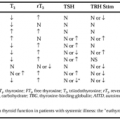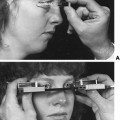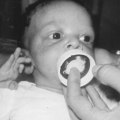SPECIAL CLINICAL PROBLEMS
Part of “CHAPTER 45 – HYPOTHYROIDISM“
DIAGNOSIS AND MANAGEMENT OF PATIENTS WITH NONTHYROIDAL DISEASE
Nonthyroidal disease complicates the evaluation of thyroid function. Differentiating hypothyroidism from the effects of nonthyroidal disease is a common reason to request endocrine consultation in hospitalized patients. Although patients who have nonthyroidal disease are not clinically hypothyroid, their clinical state may have some features in common with hypothyroidism, such as lethargy, hypothermia, and constipation. Moreover, the effects of nonthyroidal disease on binding proteins and iodothyronine metabolism may result in changes that suggest associated hypothyroidism.30 Most clinical investigators think that the decreased conversion of T4 to T3 that occurs in illness facilitates the conservation of body protein stores and does not indicate hypothyroidism (see Chap. 30, Chap. 36 and Chap. 232).
Although patients with primary hypothyroidism have decreased serum T4 and increased serum TSH levels, patients with nonthyroidal disease may have decreased levels of serum T3 and normal or reduced levels of serum T4.28 Decreased serum T3 levels are encountered so frequently in these sick patients that this determination is of little value.41 When the serum T4 level remains normal in patients with nonthyroidal disease, there is no difficulty in excluding hypothyroidism.28 However, when patients with severe nonthyroidal disease have decreased serum T4 levels, the serum FT4 concentration often remains normal, a finding that also would exclude hypothyroidism. Nevertheless, because of the presence of circulating inhibitors of thyroid hormone binding to plasma-binding proteins, and depending on the technique used to determine FT4, even this value may be decreased in very sick patients.42 A diagnosis of primary hypothyroidism usually can be excluded in such patients by finding a normal level of serum TSH, but studies have shown that the magnitude of the TSH secretory response to TRH after an experimentally produced decrease in serum T4 and T3 levels may be reduced in approximately one-half of older individuals and in patients with nonthyroidal disease.43 These findings suggest that TSH may fail to rise in some in whom nonthyroidal disease coexists with primary hypothyroidism. Experience and clinical judgment are essential to complement laboratory values in evaluating thyroid status in some sick patients with low serum T4 and TSH concentrations.
The finding of TSH elevation in an intensive care unit (ICU) patient usually indicates primary hypothyroidism. In a study of 86 patients who were hospitalized in an ICU, only two patients had hypothyroidism, and both had elevated serum levels of TSH.44 There is a caveat to the interpretation of an elevated TSH in an ICU patient recovering from a recent, severe illness: TSH levels are elevated during the recovery of patients without endocrine disease whose serum T4 levels were diminished during severe nonthyroidal illness. In such patients, the TSH elevation is transient and resolves after normalization of the serum T4 level.45
Because the concentration of reverse T3 is normal or increased in nonthyroidal disease and is decreased in hypothyroidism, the measurement of reverse T3 may be helpful in differentiating patients with low TSH and secondary hypothyroidism caused by hypopituitarism from patients with nonthyroidal illness.42 Serum T4 and TSH concentrations may be decreased in both clinical settings. The finding of low serum levels of T4 without elevations of serum TSH in a severely ill ICU patient most often occurs in the absence of endocrine disease. However, these laboratory data are also consistent with TSH deficiency. Because pituitary failure may coexist in an ICU patient, assessment of this life-threatening possibility is an important part of the endocrine evaluation of these patients.
Stay updated, free articles. Join our Telegram channel

Full access? Get Clinical Tree






